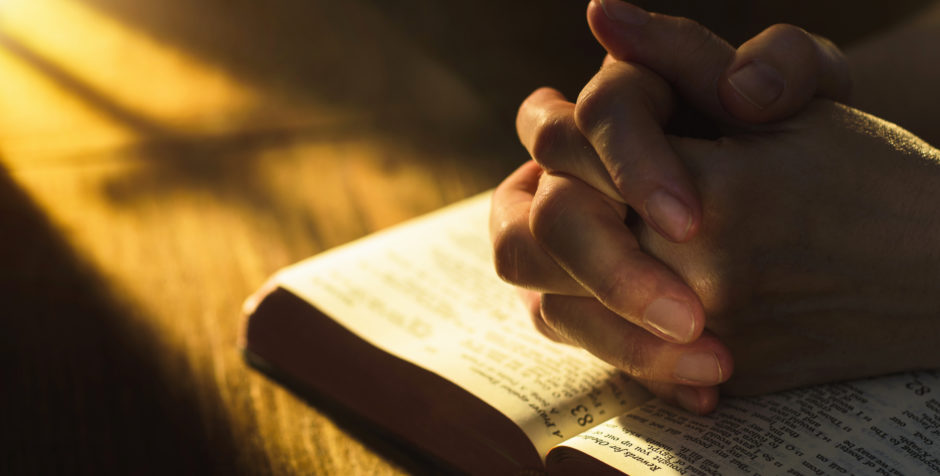Victory: Appeals Court Upholds Legislative Prayer
Today, the United States Sixth Circuit Court of Appeals sitting en banc—that is, all active judges rather than the usual three—upheld the Jackson County, Michigan, Board of Commissioners’ practice of starting its meetings with prayer.
The American Center for Law & Justice (“ACLJ”) filed an amicus curiae (“friend-of-the-court”) brief supporting the County and argued that its legislative prayer practice is constitutional. The Sixth Circuit agreed.
Jackson County allows each Commissioner, on a rotating basis, to give a brief invocation during the opening ceremonial portion of Board meetings. Each Commissioner is allowed to offer an invocation as dictated by his or her conscience. Neither the Board nor the County reviews, approves, or drafts the content of the invocations.
Each Commissioner is treated equally regardless of the Commissioner’s beliefs, and no Commissioner has been prevented from giving an invocation based on that Commissioner’s beliefs. The invocations are sometimes sectarian, and citizens are not required to attend the Board’s meetings, or to participate in, or agree with, the prayers.
Peter Bormuth, a Jackson resident, objected to the invocations because he found them “offensive.” He filed a lawsuit in federal court in Detroit. The trial court ruled against him and upheld the legislative prayers. He appealed to the Sixth Circuit.
A three-judge panel of the Sixth Circuit issued a divided opinion (2-to-1) reversing the trial court’s decision. The Sixth Circuit later vacated the three-judge opinion and reheard the case this summer en banc.
In a lengthy decision, the majority of judges determined that the Board’s practice of opening its sessions with a Commissioner-led prayer does not violate the Constitution. As the majority explained:
Since the founding of our Republic, Congress, state legislatures, and many municipal bodies have commenced legislative sessions with a prayer. Consonant with this historical practice, defendant Jackson County Board of Commissioners opens its public meetings with a prayer that is generally solemn, respectful, and reflective. Plaintiff Peter Bormuth claims that this custom violates the Establishment Clause of the United States because the Commissioners themselves offer the invocations. We disagree….
The majority’s ruling is consistent with the arguments set forth in our amicus brief. We argued that Supreme Court precedent permits the offering of sectarian prayers before legislative sessions, as is sometimes the case during the Jackson County Board meetings. We explained that a Commissioner giving an invocation during the ceremonial part of the meetings raises no more constitutional concerns than if the County had rotating clergy give sectarian invocations (a practice that has been upheld by the Supreme Court) or if the County had hired a single clergyman to handle all the invocations (which has also been upheld by the Supreme Court).
Moreover, our brief explained that Jackson County has not forced attendees of the Board meetings to participate in any religious activities. The County requires no citizen to listen to, or participate in, the brief invocations. The invocations do not proselytize or disparage any faith (or belief system), and there is no requirement that anyone show reverence during the prayers or agree with their content.
Although citizens who attend the meetings have, at times, been asked to stand and bow their heads by the Commissioner giving the invocation, those were requests, not demands. Such requests are commonly made before any form of prayer takes place, whether sectarian or nonsectarian. They are similar to inviting citizens to recite the Pledge of Allegiance or asking for the removal of hats before the singing of our National Anthem—such invitations may easily be declined (and often are by some individuals) without the imposition of any form of penalty.
The Sixth Circuit’s decision will not end the battle initiated by those opposed to legislative prayer. Recently, the United States Fourth Circuit Court of Appeals, also sitting en banc, ruled against a North Carolina county’s policy that permitted commissioners to offer a prayer or a moment of silence at the start of their meetings. Other decisions issued around the country have also reached conflicting conclusions. It is likely that, sooner or later, the United States Supreme Court will resolve the conflict between these court decisions.
The ACLJ will continue its defense of legislative prayer just as we have defended other forms of public prayer, including the recent filing of an amicus brief supporting the practice of a California school board opening its meetings with prayer.
